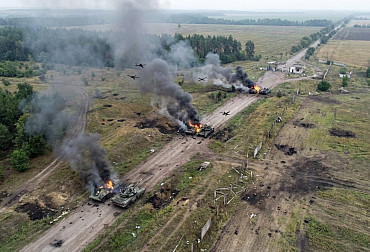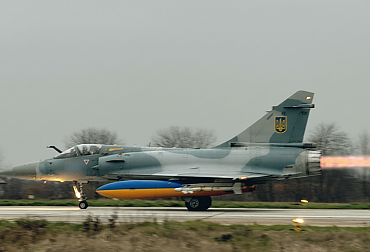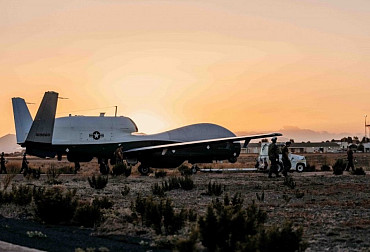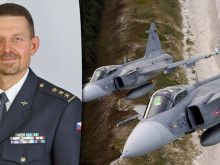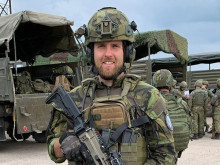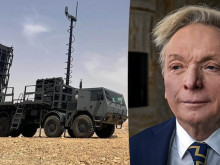Introducing: Military Police Criminal Investigation Department
It uncovers crimes and their perpetrators, acts as a police authority in criminal proceedings, investigates misdemeanors, searches for wanted or missing soldiers and lost or stolen military equipment, usually in cooperation with the Czech Police. All this is the job of the Military Police Criminal Investigation Department. Let's take a closer look at this department through an interview with its head, Colonel Martin Bečvář.
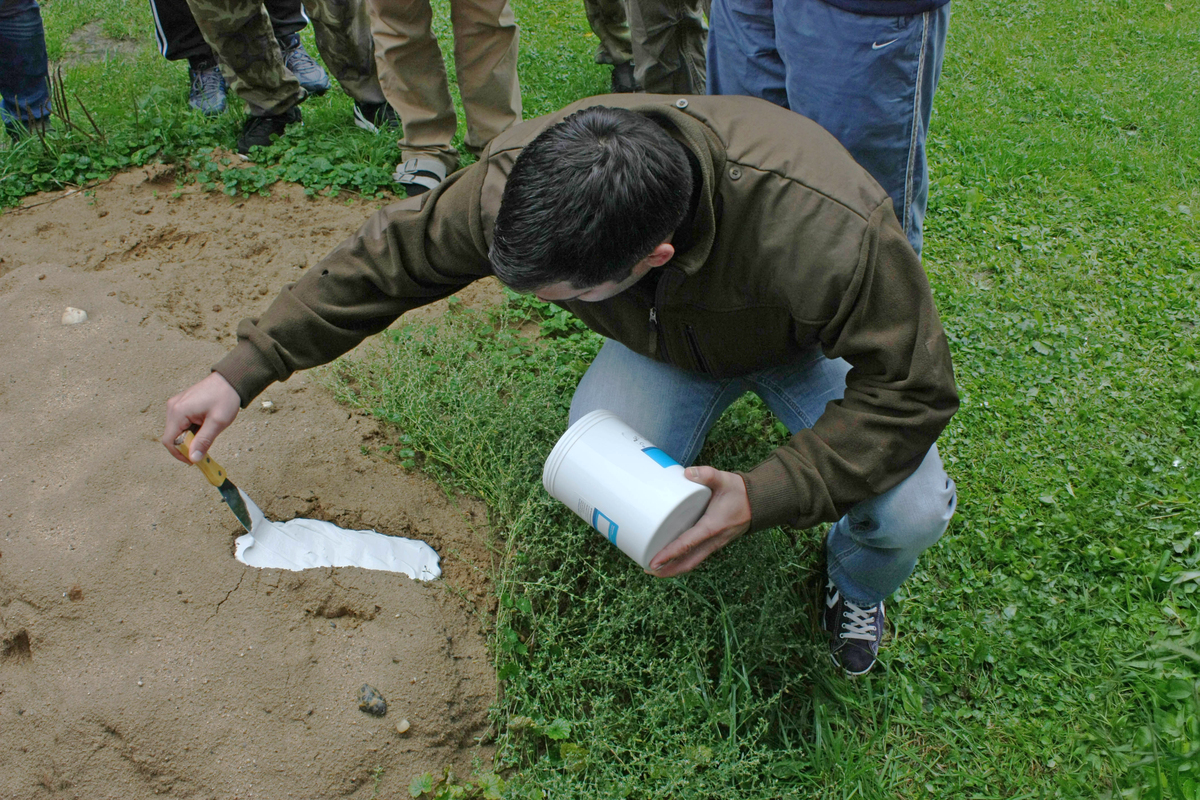
Colonel, what are the main responsibilities and powers of the Military Police Criminal Investigation Department?
In response to your question, I must begin with the jurisdiction and powers of the Military Police. These are granted by law, primarily by Act No. 300/2013 Coll. on the Military Police. The main ones include detecting crimes, identifying their perpetrators, and taking measures to prevent criminal activity related to the Ministry of Defense. In addition to the Military Police Act, its jurisdiction and powers are also regulated by the Criminal Procedure Code. Within the internal structure of the Military Police, the Criminal Service Department is responsible for performing tasks in criminal proceedings, and its members have the status of an authorized police authority. In addition to the tools established or arising from the Military Police Act, they are authorized to use criminal law institutions that are also used by other police authorities, including the Police of the Czech Republic, to investigate and prosecute criminal offenses. If we perceive the authority to perform acts in criminal proceedings as a capability, then it is not possible to clearly highlight any specific component that would clearly surpass the others. The activities of a police authority in detecting and investigating criminal offences are a set of complex, interlinked and interdependent professional activities that require each member to have multidisciplinary knowledge that other executive branches of the VP do not have.
How do the powers of the Military Police differ from those of the civilian police when investigating criminal offenses?
There are two aspects to this question. First, as we have already outlined in the previous answer, the powers of the Military Police as a police authority are practically identical to those of the Czech Police when performing tasks under the Criminal Procedure Code. The exception is the power to use an agent, which is reserved for the Czech Police and the General Inspection of the Security Forces. This restriction seems quite logical, as it is a very demanding activity requiring considerable manpower and resources. However, the law does not prevent us from using the Czech Police as a service provider in such cases. For the sake of completeness, it should be mentioned that not all police authorities are granted the status of an investigating authority under the Criminal Procedure Code. The Criminal Service Department of the Military Police obtained this authorization in 2010 for investigations in foreign missions and subsequently in 2016 for all criminal proceedings conducted. The factor that distinguishes the Military Police from the Police of the Czech Republic is the different material and personal jurisdiction of the police authority in the investigation and prosecution of criminal offenses.
In layman's terms, while the procedures and powers of the police authority are identical for both the Military Police and the Police of the Czech Republic in criminal proceedings, the scope of persons against whom the Military Police acts in the investigation of criminal offenses differs. Since the Military Police operates mainly within the Czech Armed Forces, its members have, in addition to knowledge of the local environment, the necessary knowledge of military and departmental regulations and principles of military subordination. Another equally important aspect is regular contact with representatives of the Czech Armed Forces at the level of basic units, focusing on solving current problems, whether from the perspective of prevention or the prevention of criminal activity as such. The investigation of criminal activity in foreign operations involving members of the Czech Armed Forces is also a unique capability of the Military Police. For these reasons, the jurisdiction of the Military Police is regulated differently from that of the Czech Police. This is not because the Czech Police authorities are less capable of investigating criminal activity, but because the Military Police authorities have specialist information and knowledge that they can use more effectively in performing tasks investigating criminal activity within the Ministry of Defense in the Czech Republic and abroad.
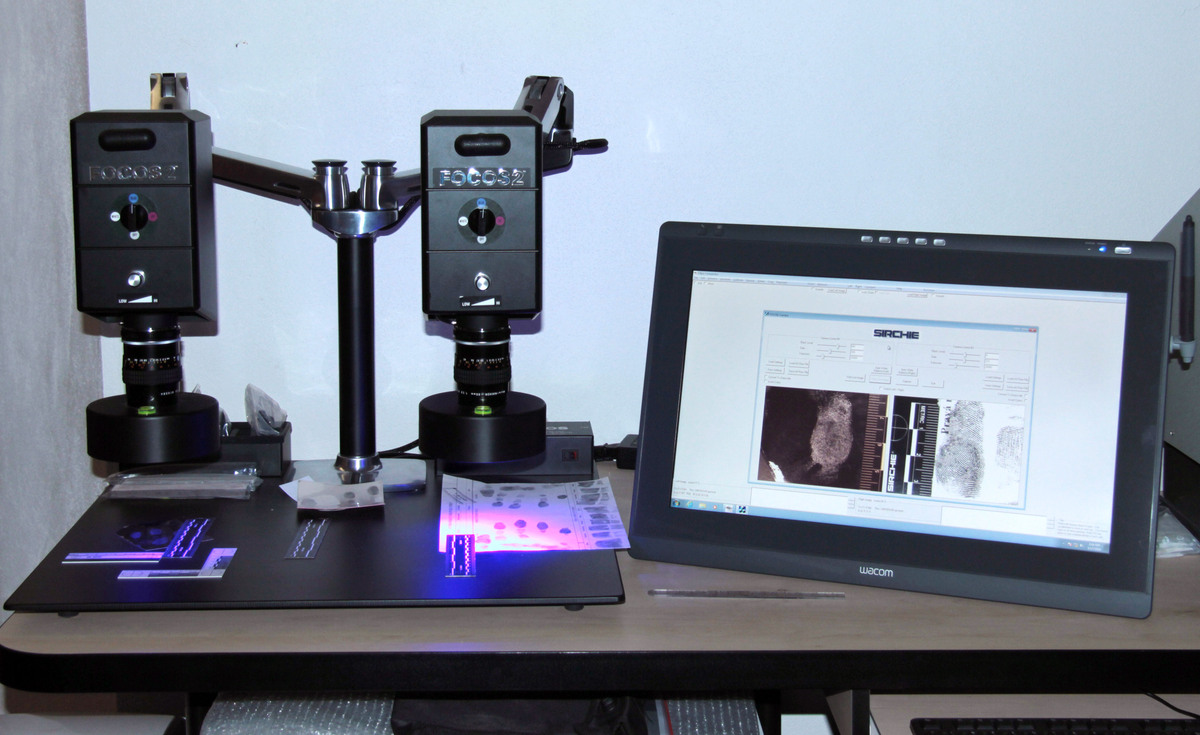
The Military Police are responsible for investigating all forms of criminal activity, from minor offenses to crimes committed by organized groups. The police are required by law to act and make every effort to gather and evaluate evidence, regardless of whether it is a simple theft causing damage of ten thousand crowns or collusion in a public tender or auction causing damage amounting to tens or hundreds of millions of crowns. Here we encounter the pitfalls of police statistics, i.e., hard data and comparisons of the effectiveness of crime detection. Statistics can never provide a comprehensive picture of the complexity of the work behind individual items. Unfortunately, this simple comparison of numbers without additional attributes has become established as a “tick system” in the security forces. For example, when we talk about less serious crimes with a low level of conspiracy or crimes committed in the heat of the moment, the amount of effort and resources expended is usually lower than in cases that require long-term deployment of operational resources and months of data collection and analysis. However, in statistical reports, these cases carry the same weight, with no informative value for those who are unfamiliar with the modus operandi of the crime and the necessary police tactics.
In general, it can be said that we encounter the same forms of criminal activity in the Ministry of Defense environment as in the civilian environment. The army is a reflection of our society, albeit in a somewhat condensed form, and this is true not only in this area. We mainly deal with property crime, including theft and fraud, as well as criminal activity involving negligent bodily harm, typically caused by traffic accidents resulting in injury, criminal activity related to alcohol and other substance abuse, cases of domestic violence, and so on. In recent years, we have also seen an increase in cases committed in cyberspace. At the same time, we are also dealing with cases of large-scale economic crime requiring the long-term allocation of resources from the department and other participating entities. In terms of the total number of proceedings conducted, we are comparable to the GIBS, which is closest to the VP police authority in terms of the nature of its existence and tasks.
How does cooperation between the Military Police and civilian security forces work?
Cooperation between individual police authorities is absolutely essential and is required by the Criminal Procedure Code. It has several levels (permanent, ad hoc) and may vary slightly depending on the partner security force involved. Naturally, we cooperate most intensively with the Police of the Czech Republic. In terms of size, we are one of the smaller police units (the criminal service accounts for only 10% of the executive branches of the VP). We cooperate on a permanent basis, for example, in the areas of criminal investigation, where we provide each other with expert opinions (Criminal Investigation Institute, Criminal Investigation Technology and Expertise Department of the VP). We are also able to carry out expert examinations in a classified mode up to level “T” compared to other expert institutes of the Czech Police. Within the scope of our activities, we also cooperate closely with other police authorities, both by providing mutual assistance and resources upon request and, in particular, by sharing relevant information, as criminal activity is not limited by the fences of a military facility or state borders. I would also like to mention our cooperation with the Czech Police in the education and professional development of our officers. The methods and procedures used by individual police authorities do not differ, and it is therefore neither effective nor economical to maintain multiple training facilities funded from public budgets.
I would like to take this opportunity to thank all our partners who cooperate with us. I greatly appreciate that they allocate their resources to fulfill the tasks of the Criminal Service of the Military Police, even though they have enough tasks of their own.
Does the Military Police have the authority to investigate crimes committed by civilians on military premises?
Yes, according to the Criminal Code, we can conduct investigations into crimes committed by civilians in specific cases. These are cases where civilians commit crimes against members of the armed forces on military premises.
It also includes acts against military facilities, military equipment, or other state property managed by the Ministry of Defense, as well as acts against the property of state-funded organizations, such as the Military Spa and Recreation Facility, Army Service, Central Military Hospital-Military University Hospital Prague, or criminal offenses against the property of state-owned enterprises, such as VOP CZ, s. p., LOM PRAHA s. p., Military Forests and Estates of the Czech Republic, s. p., and so on. However, proceedings may also be conducted in other matters if ordered by the public prosecutor.
In practice, these cases involve misuse, theft, and embezzlement of military equipment or Ministry of Defense materials, assaults on soldiers, vandalism (especially graffiti), which causes significant property damage, and even cases of intrigue and collusion in the awarding of public contracts within the Ministry of Defense.
How does international cooperation work in investigating crimes with a military dimension?
We have learned on the job in this area, as we have gained the necessary experience through the activities of the armed forces in foreign operations. Only direct confrontation with a situation can really prepare you for the reality of operational deployment. Trust between cooperating authorities is important, as it naturally influences the volume and relevance of information sharing. We now have practical experience in this area, which we continue to deepen not only by maintaining contacts and links between the police forces of the military police of the Alliance countries, but also by participating in foreign military police exercises, such as the SHERIFF 2025 exercise organized by the Lithuanian military police. Our officers were involved not only in the preparation, but a group from the military police criminal investigation service also took part in the exercise and practiced joint operations with other international teams, for example in the investigation of a crime scene.
Investigations in an international environment usually involve issues of national sovereignty, where criminal law in individual countries differs from that of the Czech Republic, and obtaining the necessary information through formal channels is often a lengthy process. The resulting delays can make it difficult to properly clarify the matter.
If the police authority is not an integral part of the military contingent deployed in the operation, the Military Police has a criminal investigation team that is able to travel to the scene in the event of an emergency abroad and, in accordance with the mandate for the operation, conduct its own investigation, including establishing cooperation with local police and other authorities to ensure a proper and objective clarification of the matter. In such cases, the response team is dependent on close cooperation with the Ministry of Defense and the Czech Army for logistical and administrative support.
What methods and technologies do you use to investigate military crime?
First of all, it must be said that the term “military crime” is somewhat misleading. When we talk about criminal activity committed by soldiers in active service, the vast majority of cases involve standard criminal investigation and tactical procedures. Exceptions may be cases where special investigation methods are required in the fields of pyrotechnics or ballistics. We devote considerable effort to the lifelong education of our personnel so that we can make maximum use of the latest methods and technologies in the detection and documentation of criminal activity. In this respect, forensic science is developing quite rapidly, particularly in relation to IT, but also in traditional fields. Our forensic experts, criminal technicians, investigators, and other police officers regularly participate in methodological training and courses across security forces in the Czech Republic and abroad with the aim of maintaining the Criminal Police Service's ability to respond to new threats of crime and trends in crime prevention and detection.
Are there specific procedures for investigating crimes committed during foreign missions?
The investigation of criminal activity during foreign missions is subject to the same legal principles as investigations conducted in the Czech Republic, with public oversight guaranteed by the public prosecutor’s office.The specific nature of investigations abroad lies in the nature of the area and the mandate of the mission, such as the distance to the scene, the accessibility of the crime scene itself for investigation, the security situation on site, language barriers and the possibility of hiring an interpreter, as well as the support of local or multinational police authorities. Members of the task force must quickly orient themselves and adapt to local conditions, establish contact with their counterparts, and set up communication channels for the exchange and sharing of information. The legal framework within which our units operate abroad, i.e., whether they proceed in accordance with NATO SOFA, PfP SOFA, or specific international treaties, is crucial for determining the jurisdiction of the Military Police and Czech law enforcement authorities.
What are the biggest challenges in investigating military crimes?
Only soldiers on active duty or members of the active reserves during training exercises can commit a military crime within the jurisdiction of the Military Police. In these cases, the protected interest is the order and unity of the armed forces. In order to fulfill their mission, the armed forces must be highly organized and constantly ready for immediate deployment. This necessitates centralized management and a hierarchical organizational structure based on superiority and subordination, as well as the need for relatively broad and detailed legal regulation of relations within the armed forces. This is all the more true given that service in the armed forces and security forces entails a whole range of restrictions compared to normal civilian life (strict subordination, formalism in relationships, necessary restrictions on certain constitutional rights and freedoms), to which members must submit in the interests of the functioning of the whole. This should be borne in mind by all command authorities at all levels. And here lies perhaps the biggest stumbling block. We often encounter attempts, motivated by various reasons, to cover up or downplay certain types of behavior that, taken together, constitute military offenses. It is important to realize that the negative image of the army created in this way has great potential to damage its credibility, even at the strategic level.

What are the career opportunities for criminal investigators in the Military Police?
Training and educating criminal investigators capable of working independently is a long process. This job requires police intuition, which is a skill that cannot be acquired simply by successfully completing a course of study. Only through the successful practical application of theoretical knowledge in a real-life environment can graduates demonstrate their aptitude for becoming good criminal investigators. After acquiring the knowledge required to process criminal cases, investigators specialize in specific areas, taking into account their personality traits and preferences. Some are more inclined towards operational activities, others towards conducting and evaluating analyses, and others towards investigating or securing evidence at crime scenes as forensic technicians. Within the criminal service structure, it is possible to work your way up from warrant officer to the senior officer corps.












